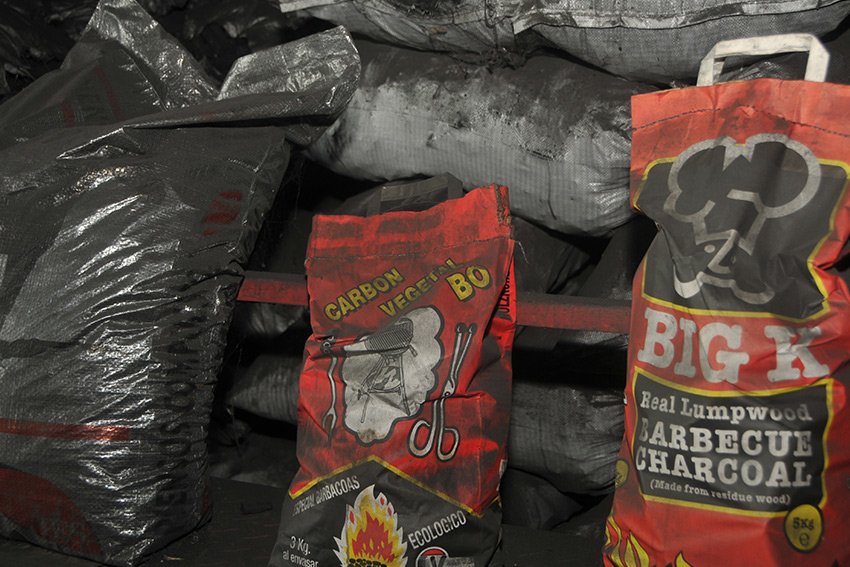
A recent report on salaries in the new monetary order environment in the Carbón Jobabo Basic Business Unit (UEB, for its acronym in Spanish) made those involved there and in the National Charcoal Company of the Flora and Fauna Business Group (ARDO, for its acronym in Spanish), to which it belongs, jump out of their seats.
The journalistic investigation, duly supported by sources from the entity itself, led to the creation of an investigative commission made up of government authorities in the province, as well as managers and specialists from the Provincial Directorate of Labor and Social Security, which showed how complex a process of change can be in Cuban business dynamics.
TAKE TWO
In front of the microphones of Radio Cabaniguán, the workers of the Jobabo charcoal plant expressed their dissatisfaction with their current salary, assuring that before the reforms included in the Ordering Task, they received higher incomes by adding the stimulation they received in the almost extinct convertible pesos (CUC, for its acronym in Spanish). However, after evaluating their production and income, the commission concluded that on average their fees grew by 200 percent compared to what they were earning at the end of 2020. There were also increases in the wage rates so that if this increased by 10.2 times, the work standard only increased by 2.3 times.
The work is hard, we have many limitations due to the pandemic, the economic blockade that limits inputs, transportation, technologies, equipment, in addition to the sales of coal abroad, which has led to having to work more and in different conditions", says Nelson Eusebio Raez Raez, ARDO's director. In the case of utilities, he insists, they have always taken into account those who are directly involved in production. It is the latter, he says, who receive the most.
According to official figures, in the first four months of the year, ARDO failed to meet its production plan by more than six million pesos, of which 5.6 million pesos were accumulated in April alone. The government investigative team corroborated that the Jobabo charcoal plant contributed 44.8 percent of the total amount of profits generated by the company in the first quarter of the current year. None of the other base business units (UEBs) reached that amount. At the time of distribution, the workers of such plant received 40.3 percent of the total; 4.5 percentage points less than what they had contributed.
This financial "cake" was cut by the company, because although the 15 measures to make the UEBs' prerogatives more flexible were approved in September 2020, among which was the power to distribute their own profits, the decree-law, which in the end established the guidelines on how to do it, was only published on May 7.
IF THERE IS COMMUNICATION, THERE IS NO SUSPICION
Under the scorching sun in the fields of Palo Seco, the charcoal workers of Jobabo confirm that their salaries depend on production. The charcoal workers, they say, are self-sacrificing, but they always try to do more. The UEB, they say, helps as much as it can, but they indeed lack the ideal inputs to do the job. From the processing plant, they consider that they should benefit more in terms of the salary group in which they find themselves. Their work, they emphasize, is quite hard and is of vital importance for the national economy.
These dissatisfactions have been heard since before the Ordering Task, said Yusleidis Valdés Alonso, general secretary of the Workers´ Central Union of Cuba (CTC, for its acronym in Spanish) in Jobabo. "We have processed them with the higher instances. There has not been any kind of dissociation on the part of the union and the CTC, but we have not been able to solve this part," she said.
Commenting on the matter, Jaime Ernesto Chiang Vega, governor of Las Tunas, emphasized the dissonance between the vision of the workers of the coal plant, the changes that have occurred in recent months in the rules governing the Cuban state business, and what has actually been approved by the top management of the country. It is a matter of perception, of sitting down with them, of listening to them and giving them the right answer, he reflected during a meeting with the main state entrepreneurs of the province. That is why he suggested that what was made known by the press should serve as study material to strengthen the UEB-Enterprise and workers-management communication.
Ivonne Rodríguez described the compendium of legal norms, which loosened several ties to the base business units (UEB), as a prelude to the Law of Enterprises to be approved next year. The legal director of the Ministry of Economy and Planning (MEP, for its acronym in Spanish) urged entrepreneurs to get out of their comfort zone and take advantage of these opportunities on the new legal basis created. Now that they are already available, it should not take too long for them to be applied in the southern municipality of Las Tunas.
Perhaps, the most important thing is not to spend too much time trying to find out who was right; but to take note of the moral of this story: the first one is that if there is communication there is no suspicion within any business organization; the second one is that letting the UEBs do things by themselves will not come about by spontaneous generation, it entails risks that will necessarily have to be taken. Otherwise, when will they learn?





